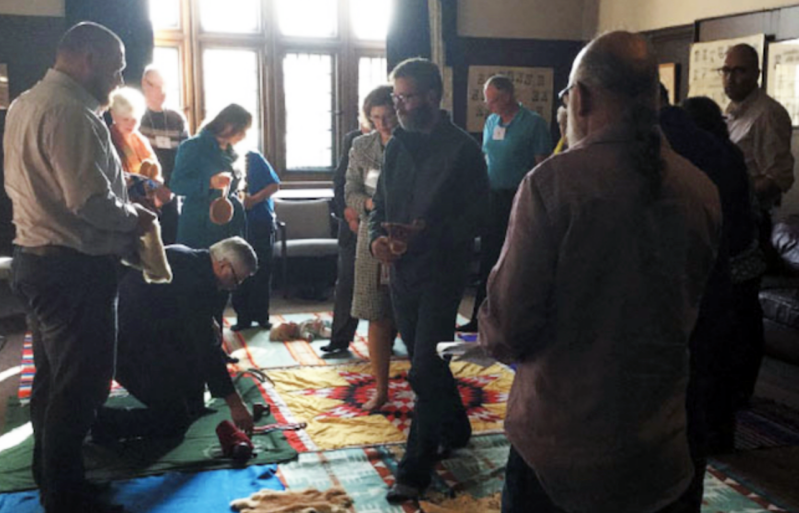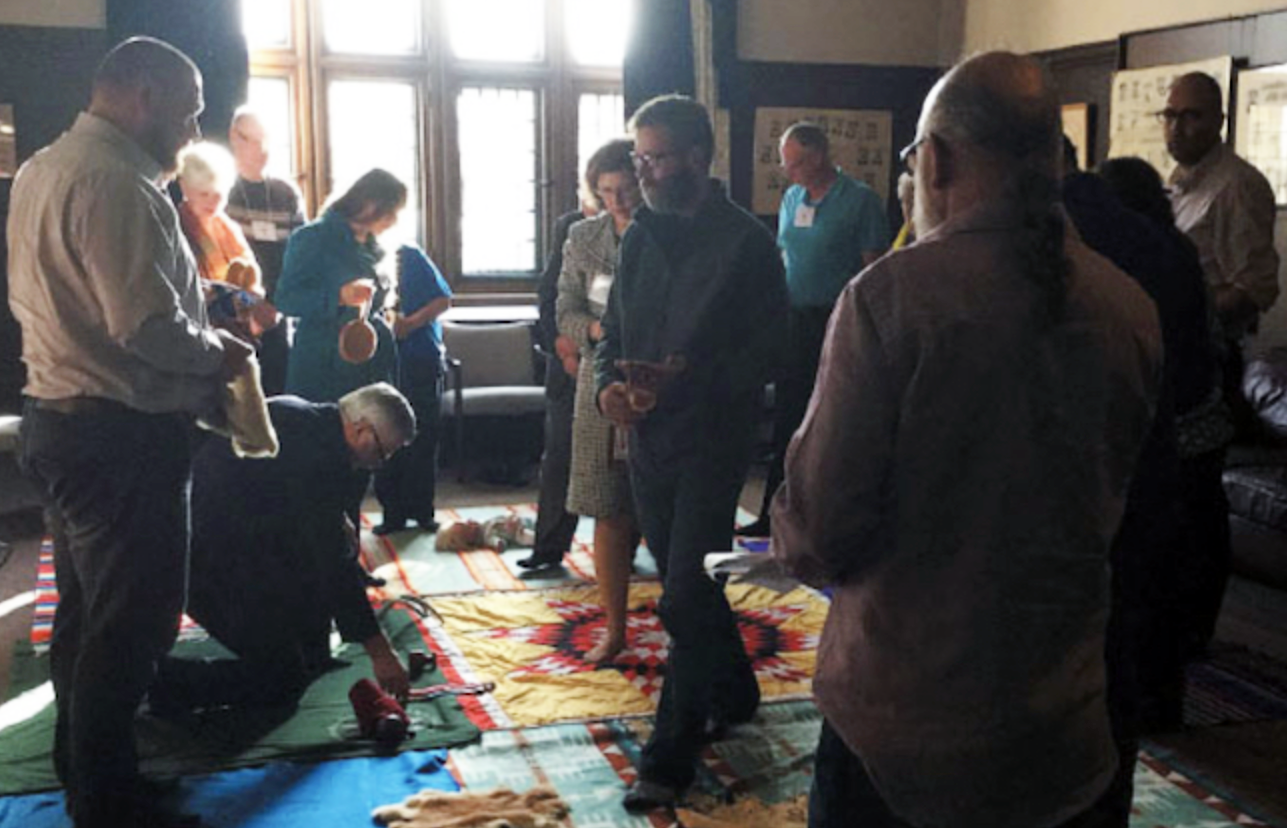
The Evangelical Fellowship of Canada (EFC) commemorated the National Day for Truth and Reconciliation on Tuesday with a video message from its president, Dr. David Guretzki, urging evangelicals to embrace a long-term commitment to reconciliation with Indigenous peoples.
The federal statutory holiday, observed each Sept. 30, honors survivors of Canada’s residential school system and remembers the thousands of children who never returned home. It was created by Parliament in response to Call to Action 80 of the Truth and Reconciliation Commission, which concluded its work in 2015. Orange Shirt Day, led by Indigenous communities and also marked on Sept. 30, raises awareness of the intergenerational trauma caused by the schools. The orange shirt symbolizes the loss of culture, freedom and self-esteem that many Indigenous children experienced.
“Today we prayerfully consider our own journey of learning and action toward reconciliation and right relationships with Indigenous peoples, both as individuals and as a fellowship of believers,” Guretzki said in the video message. Quoting Galatians 5:13-14, he reminded evangelicals: “We’re called to love deeply, to listen well, to speak truth, and to pursue justice.”
For over 100 years, more than 150,000 First Nations, Inuit and Métis children were separated from their families and communities in residential schools, often run by churches in partnership with the government. In 2008, then-Prime Minister Stephen Harper issued a formal apology, acknowledging that the schools were designed to assimilate Indigenous children, prohibited their languages and cultural practices, and in many cases subjected them to neglect and abuse. “The policy of assimilation was wrong, has caused great harm, and has no place in our country,” Harper said at the time.
Guretzki said the EFC’s involvement in reconciliation stretches back three decades. In 1995, former presidents Brian Stiller and Bruce Clemenger joined the Sacred Assembly convened by Oji-Cree leader and parliamentarian Elijah Harper, which produced the Reconciliation Proclamation. Later that year, the EFC invited Christian Indigenous leaders to form an Aboriginal Task Force, later renamed the Aboriginal Ministries Council, to strengthen relationships, encourage learning, and create educational resources for churches. That council continued until 2012.
Since the Truth and Reconciliation Commission’s final report, the EFC has responded to several of its Calls to Action, including #48, which urged faith groups to adopt the United Nations Declaration on the Rights of Indigenous Peoples as a framework for reconciliation. To do this, the fellowship established what is now the Seven Commitments Working Group, composed of Indigenous and non-Indigenous leaders, to guide its ongoing journey.
“The EFC’s board of directors has made a long-term commitment to ensuring that right relationships with Indigenous peoples are prioritized in the work and ethos of the EFC,” Guretzki said. He added that reconciliation “must be rooted in relationship” and compared the process to climbing a mountain — difficult but necessary.
The EFC reiterated this stance in a July letter to Prime Minister Mark Carney. The letter urged the government to honor its constitutional duty to consult Indigenous peoples on projects affecting their rights and lands, in line with the UN declaration. It emphasized that Indigenous peoples “can and must be full partners” in nation-building projects and energy development, calling such consultation essential to reconciliation and the common good.
The National Day for Truth and Reconciliation continues to be a time for Canadians to reflect on the history and legacy of residential schools. Survivors’ advocacy led to the Indian Residential Schools Settlement Agreement, the creation of the Truth and Reconciliation Commission, and the establishment of the National Centre for Truth and Reconciliation, which houses archival records and a student memorial register.
As he closed his message, Guretzki urged evangelicals to pray and take part in the ongoing work. “Reconciliation is a journey, a process, and we know it will take intentionality,” he said. “There will be storms, there will be obstacles, but we cannot allow ourselves to be daunted by the task because our goal is just and is also necessary. Will you commit to praying and working with us on these matters of great importance?”
The EFC represents about 2.5 million evangelicals in Canada through its network of congregations, denominations, educational institutions and ministries. Its leaders said they remain committed to ensuring reconciliation is not an occasional observance but an enduring part of their values and history.
News Source : https://www.christiandaily.com/news/evangelicals-urged-to-listen-well-and-pursue-justice-as-canada-marks-national-day-honoring-residential-school-survivors
 Your post is being uploaded. Please don't close or refresh the page.
Your post is being uploaded. Please don't close or refresh the page.





